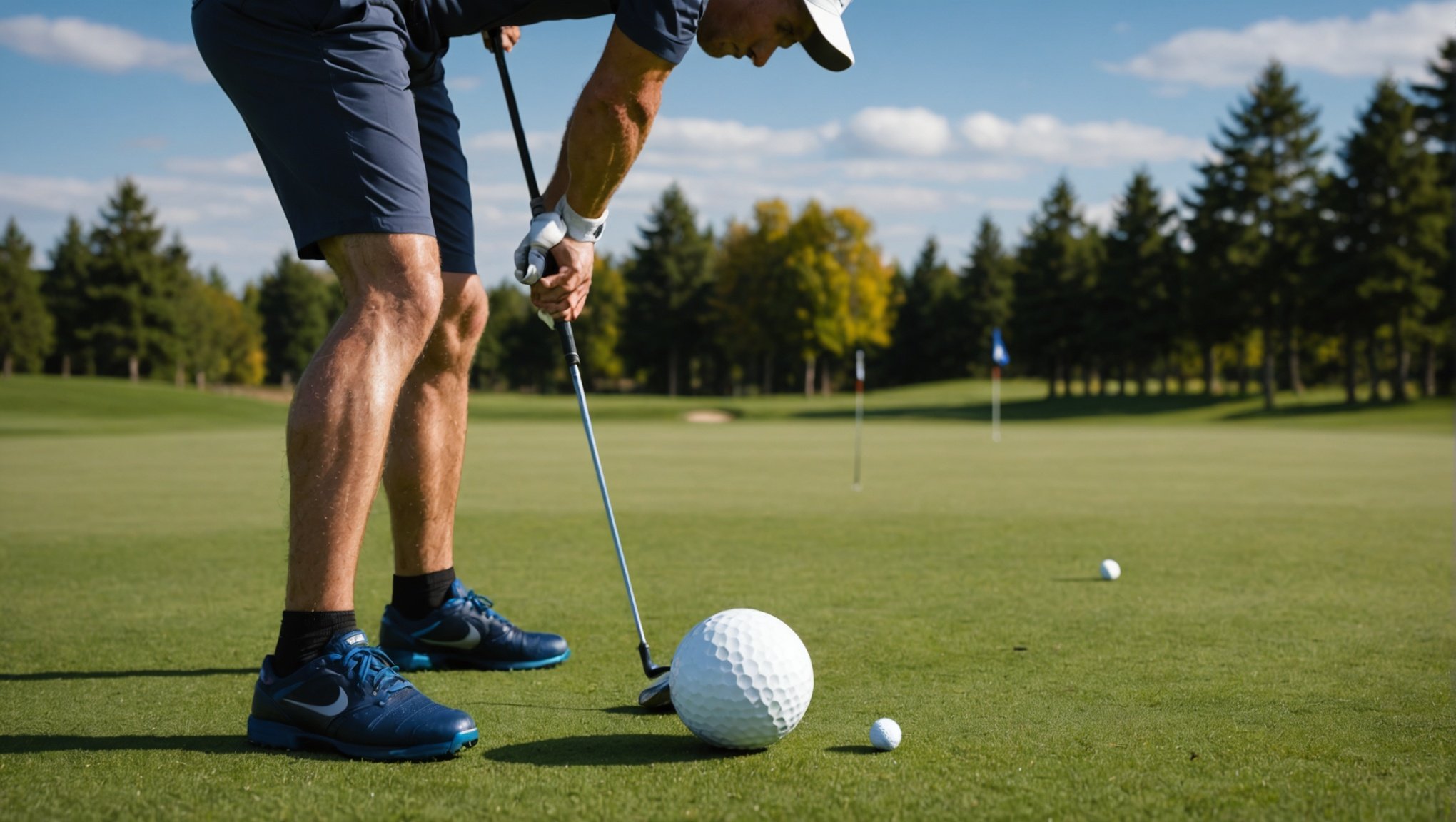Golf requires precision, yet many players struggle with their shot accuracy. Sports science offers innovative techniques to improve this vital aspect of the game. By understanding biomechanics and employing advanced training methods, golfers can refine their swings and enhance their performance. Discover how integrating sports science not only elevates accuracy but also fosters a deeper connection to the sport. Embrace evidence-based strategies and transform your game today!
Overview of Sports Science in Golf
Sports Science plays a pivotal role in enhancing golf performance by applying scientific principles to improve various aspects of the game. This interdisciplinary field encompasses biomechanics, physiology, psychology, and nutrition, all aimed at optimising a golfer's abilities. By understanding the dynamics of a golf swing, sports science helps in refining techniques, ensuring consistency, and increasing shot accuracy.
Also to see : Essential tests of running and trail shoes for every runner
Key principles of sports science relevant to golf include biomechanics, which analyses the motion and forces involved in a golf swing. This understanding allows golfers to make precise adjustments to their stance and swing to improve performance. Additionally, physiology focuses on the physical conditioning necessary for endurance and strength, which are crucial for maintaining performance throughout a round.
Sports science also addresses the mental aspects of golf, such as concentration and stress management, which are vital for maintaining focus during play. By integrating these principles, sports science provides a comprehensive approach to improving shot accuracy. For instance, by analysing swing mechanics and muscle engagement, golfers can enhance their precision and consistency. This holistic approach not only optimises physical capabilities but also fine-tunes mental strategies, ultimately leading to improved performance on the course.
Additional reading : Top tests to choose the best running and trail shoes for you
Biomechanics and Golf
Understanding biomechanics is fundamental to enhancing golf performance, as it involves the detailed analysis of swing mechanics and body movement. This scientific approach examines how forces interact with the body during a swing, allowing golfers to optimise their technique for improved accuracy and efficiency.
Role of Biomechanics in Golf
Biomechanics provides insights into the optimal alignment and movement patterns needed for a consistent and powerful swing. By studying the mechanics of a golf swing, players can identify areas for improvement, such as adjusting their grip, posture, or swing path. These adjustments can lead to significant enhancements in shot precision.
Analyzing Swing Mechanics
Swing mechanics are crucial for achieving accuracy in golf. Proper mechanics involve a seamless transfer of energy from the body to the clubhead, ensuring maximum impact with the ball. By understanding the biomechanics behind this process, golfers can refine their technique, reducing errors and increasing the consistency of their shots.
Impact of Body Movement
Body movement plays a pivotal role in determining shot accuracy. Efficient movement patterns ensure that the golfer's body is in the correct position throughout the swing, promoting balance and control. By focusing on biomechanics, golfers can develop a more robust and reliable swing, leading to better performance on the course.
Mental Aspects of Golf Performance
Sports Psychology plays a crucial role in refining a golfer's mental game, significantly impacting shot accuracy. By understanding the psychological components of golf, players can enhance their focus and maintain concentration under pressure, which are essential for consistent performance.
Role of Sports Psychology
Sports psychology helps golfers develop mental resilience, allowing them to cope with stress and maintain a positive mindset. This discipline teaches golfers how to manage their emotions, reducing anxiety and enhancing their ability to concentrate during critical moments.
Techniques for Enhancing Focus
Improving focus is vital for golfers aiming to refine their performance. Techniques such as mindfulness and controlled breathing can help players stay present and clear-headed. These methods enable golfers to block out distractions and maintain their attention on the task at hand.
Utilizing Visualization Techniques
Visualization Techniques are powerful tools in sports psychology, aiding golfers in mental preparation. By vividly imagining successful shots, players can build confidence and improve their execution on the course. Visualization helps in creating a mental blueprint of the desired swing, promoting muscle memory and reinforcing positive outcomes.
Training Techniques for Accuracy
Enhancing accuracy in golf requires a combination of effective training drills and consistent practice routines. These elements are crucial for golfers aiming to improve their precision on the course.
Effective Drills to Enhance Accuracy
Implementing targeted training drills can significantly improve a golfer's ability to hit precise shots. Drills such as the "gate drill," where golfers aim to putt through a narrow gate, help refine alignment and control. Another useful drill is the "distance control drill," which focuses on hitting shots to specific yardages, enhancing distance accuracy and consistency.
Importance of Consistent Practice Routines
Developing consistent practice routines is vital for reinforcing skills and ensuring continual improvement. Regular practice helps golfers internalise techniques, making them second nature during play. Structured routines that incorporate a mix of short and long game drills ensure comprehensive skill development.
Skill Development Strategies Tailored for Golfers
Tailoring skill development strategies to individual needs is essential for maximising performance. Golfers should focus on areas requiring improvement, whether it be putting, driving, or approach shots. Personalised training plans, often developed with a coach, can address specific weaknesses, enabling golfers to achieve greater accuracy and confidence on the course.
Technology and Equipment Innovations
Advancements in golf technology are revolutionising how players enhance their shot accuracy. By integrating cutting-edge swing analysis tools and performance-enhancing equipment, golfers can gain deeper insights into their game.
Swing analysis tools have become indispensable for modern golfers. These tools, often available as apps or wearable devices, provide real-time feedback on swing mechanics. They track metrics such as swing speed, angle, and trajectory, allowing players to make precise adjustments. Popular options include devices like TrackMan and FlightScope, which utilise radar technology to deliver detailed analysis. These tools empower golfers to fine-tune their technique, leading to improved performance.
The future of golf equipment promises further innovations. Manufacturers are developing clubs with adjustable weights and flexible shafts, offering customisation to suit individual swing styles. Additionally, smart golf balls equipped with sensors can relay data on spin rate and launch angle, providing players with comprehensive performance insights.
As technology continues to evolve, golfers can expect even more sophisticated tools that enhance their understanding of the game. These innovations not only improve physical performance but also offer strategic advantages, enabling players to make informed decisions on the course.
Nutrition and Physical Conditioning
In the realm of golf, nutrition and fitness are pivotal for achieving peak performance. Proper nutrition fuels the body, ensuring golfers have the energy and stamina required for a full round. A balanced diet rich in carbohydrates, proteins, and healthy fats supports muscle recovery and endurance, crucial for maintaining focus and strength.
Importance of Nutrition for Optimal Performance
Nutrition is integral to sustaining energy levels and enhancing focus. Consuming complex carbohydrates before play provides a steady energy release, while proteins aid in muscle repair. Hydration is equally vital; drinking water and electrolyte-rich beverages before and during play prevents fatigue and maintains mental sharpness.
Fitness Routines Supporting Golf Accuracy
Tailored fitness routines enhance golf accuracy by strengthening core muscles and improving flexibility. Exercises focusing on rotational strength, such as medicine ball twists, boost swing power and precision. Regular cardiovascular workouts increase endurance, allowing golfers to maintain performance across all 18 holes.
Hydration Strategies Before and During Play
Effective hydration strategies are crucial for optimal performance. Begin hydrating well before tee time, and continue sipping water throughout the game. Incorporating drinks with electrolytes helps replenish lost minerals, ensuring sustained energy and concentration. Proper hydration prevents dehydration-related fatigue, safeguarding both physical and mental performance on the course.
Case Studies and Expert Insights
Exploring case studies and expert insights reveals how sports science transforms golf performance. Successful golfers, like Bryson DeChambeau, have harnessed sports science to enhance their game. DeChambeau's focus on biomechanics and nutrition exemplifies how scientific approaches can lead to improved accuracy and power.
Expert opinions in sports science provide valuable guidance for golfers seeking to refine their skills. Dr. Mark Bull, a leading sports biomechanist, emphasizes the importance of understanding individual swing mechanics. His insights highlight how tailored biomechanical analysis can identify inefficiencies and guide adjustments for optimal performance.
Success stories abound where sports science has played a crucial role. For instance, Rory McIlroy's collaboration with sports psychologists has significantly improved his mental resilience, allowing him to maintain focus under pressure. Such case studies underscore the comprehensive benefits of integrating sports science into training routines.
By analyzing these examples, golfers can appreciate the practical applications of sports science. The insights from experts and real-world success stories demonstrate that a scientific approach can lead to measurable improvements in shot accuracy and overall performance on the course.
Summary of Best Practices and Resources
In the pursuit of golf improvement, understanding and implementing the right best practices is essential. These practices encompass various aspects of the game, from biomechanics to mental conditioning, all aimed at enhancing performance.
Compiling Best Practices
- Biomechanics: Focus on refining swing mechanics and optimising body movement for increased accuracy.
- Sports Psychology: Develop mental resilience and utilise techniques like mindfulness to maintain focus.
- Training: Incorporate effective drills and consistent routines to improve precision and skill development.
- Nutrition and Fitness: Maintain a balanced diet and engage in targeted fitness routines to support endurance and strength.
Recommended Resources
For those eager to delve deeper into golf improvement, numerous resources are available. Books, online courses, and expert-led workshops offer invaluable insights into sports science applications in golf. Engaging with these resources can provide a comprehensive understanding of the principles influencing performance.
Encouraging Continuous Engagement
Staying engaged with sports science is crucial for ongoing enhancement in golf. By continually learning and applying new techniques and insights, golfers can achieve sustained improvement. This commitment to growth not only refines physical skills but also enriches the mental aspects of the game, leading to a well-rounded approach to golfing excellence.













